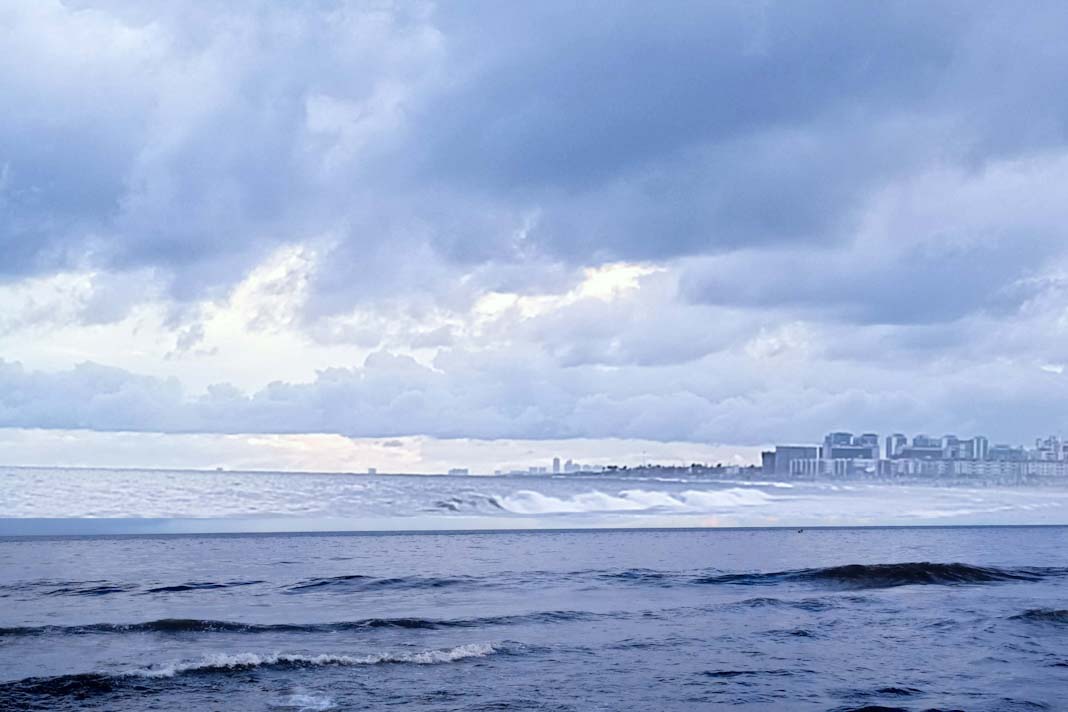Hot off the heels of the phased introduction of the EU Emission Trading Scheme for shipping, the industry is bracing itself for the impending impact of FuelEU Maritime. This new regulation, set to be enforced from January 1, 2025, mandates significant reductions in greenhouse gas (GHG) intensity. While the initial target of a 2% cut might seem modest, the potential financial consequences for non-compliance are far from negligible, reports Baltic Exchange.
FuelEU storm brewing for shipping
According to OceanScore, a Hamburg-based maritime technology firm, the container, ro-pax, bulk carrier, and tanker segments are particularly vulnerable to the financial repercussions of FuelEU. Analysis from the company forecasts a staggering €1.345 billion in total FuelEU penalties for the industry in 2025 alone. This figure was derived from an examination of 13,000 vessels exceeding 5,000 gross tonnes operating within and into the EU/EEA.
The container segment looks set to be the most exposed, shouldering a projected 29% of the overall penalties. Ro-pax follows closely with 14%, while tankers and bulk carriers each account for 13%. These figures underscore the pressure these sectors will face to comply with the stringent GHG reduction targets.
While the initial financial burden of FuelEU might appear less daunting than the EU ETS, its long-term implications are far more severe, according to OceanScore. The GHG intensity reduction targets are set to progressively tighten, culminating in an 80% reduction by 2050. This trajectory necessitates a proactive and strategic approach from shipowners to mitigate the escalating costs.
Setting a Baseline
Albrecht Grell, managing director of OceanScore, emphasized the importance of a comprehensive understanding of FuelEU for shipping companies. “Shipping companies must determine a baseline for expected FuelEU costs to secure proper planning and budgeting processes to compare different mitigation options, as well as to decide what to do with outstanding compliance balances,” he said.
Grell also highlighted the complex interplay between the party liable for penalties and the party responsible for emissions, often the charterer. This dichotomy underscores the need for robust monitoring, reporting, and contractual frameworks to manage compliance and minimize financial risks.
Navigating Complexities
To navigate the complexities of FuelEU, shipping companies must adopt a multifaceted approach. “It is therefore incumbent on shipowners to define their strategies not only towards fuel choices and the use of onshore power but also towards handling of residual compliance balances such as pooling, banking, and borrowing of balances, to mitigate the financial impact of FuelEU,” Grell said. Moreover, the development of sound contractual arrangements and efficient administrative processes is essential for mitigating the financial consequences of the new regulation.
Zero-Emission Milestone
FuelEU is just another node in shipping’s journey to full decarbonization, and the industry is counting on the growing availability of proven and at-scale alternative fuels to meet broad brush targets. The growing momentum is evident in the transition from experimental zero-emission projects to their commercialization, a shift underscored by the fifth edition of the Getting to Zero Coalition’s Mapping of Zero-Emission Pilots and Demonstration Projects report.
The report signifies a maturing industry landscape, where once-developmental projects are now geared towards commercial deployment. Ammonia and hydrogen-based propulsion systems and fuel cells remain at the forefront of technological innovation. Concurrently, the infrastructure supporting these emerging fuels, particularly onshore bunkering for hydrogen and ammonia, is gaining traction. However, challenges persist in scaling up innovative fuel production processes, exacerbated by substantial investment requirements and complex regulatory frameworks, said the report.
Liability Unknowns
To overcome obstacles, the report recommends prioritizing the ratification of the HNS Convention, developing a dedicated liability and compensation regime for alternative fuels, and fostering stronger collaboration among industry stakeholders and policymakers. “The lack of an international liability and compensation framework leaves victims of incidents at risk of inadequate or no compensation,” warned the report. “It makes shipowners and insurers vulnerable to local actions, potentially leading to increased criminalization of seafarers when liability is not clearly stated and disincentives the uptake of alternative fuels.”
Added to this, the use of and experience with alternative fuels is limited, leading to uncertainty regarding their compatibility with existing on-board systems and machinery. “This uncertainty amplifies the risk, increasing the potential for breakdowns and fuel loss, subsequently leading to pollution. Despite guidance issued by classification societies, the lack of universal standards and international regulations limits the efficacy of these measures.”
Getting to Zero Coalition urged the industry to “understand all the pieces of the net-zero puzzle”, including addressing safety challenges and regulatory gaps associated with alternative fuels, raising awareness of the potential missing legislative pieces and their implications for the protection available to victims and society, and consideration of accident scenarios through worked examples, focusing on real-life outcomes for individuals, the environment, and property, as well as potential liabilities and limits.
The report also recommended cooperation with insurers who have a “unique role to play in the decarbonization of the international shipping industry” with their understanding and mitigating the risks associated with the carriage and utilization of alternative fuels. “Insights offered by insurers who are already supporting the trials of new fuels and related pilot projects should be requested and recognized,” concluded the report.
Did you subscribe to our daily Newsletter?
It’s Free! Click here to Subscribe
Source: Baltic Exchange



















